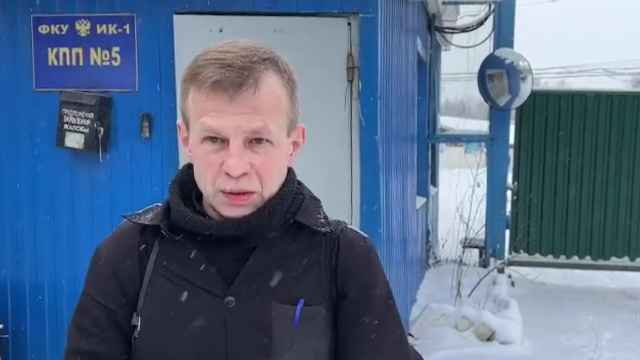Volkswagen will decide within weeks on expanding production, after sales in the country increased 40 percent last year, VW regional manager Marcus Osegowitsch said.
“The main problem for all automakers and importers in Russia is the shortage of cars,” Osegowitsch, who took the helm of operations in the country on Jan. 1, said in a phone interview.
A decision on cooperation with automaker GAZ will be made in the coming weeks, Osegowitsch said. GAZ aims to make about 100,000 cars per year for VW at its Nizhny Novgorod factory, chief executive Bo Andersson said Jan. 12.
VW, Toyota and Ford are increasing Russian output and adding models as the economy expands and government incentives spur purchases. Russian car sales may advance about 16 percent to as many as 2.2 million units in 2011, Osegowitsch said.
Deliveries may hit a pre-crisis level of 2.8 million to 2.9 million vehicles next year as the economy expands, David Thomas, head of the Association of European Businesses’ automobile manufacturers' committee, said Jan. 13.
Sales have also gained as the Russian government extends cash incentives for new cars, allocating 3.5 billion rubles ($120 million) for 2010. Spending last year reached 21.5 billion rubles.
VW’s expansion in the country is part of the carmaker’s push to increase sales to 10 million vehicles as early as 2015 and challenge Toyota as the world’s largest carmaker. VW sold 7.14 million vehicles worldwide last year, a gain of 14 percent. The Wolfsburg, Germany-based carmaker forecasts growth of 5 percent globally this year.
Volkswagen enlarged its factory in Kaluga, 170 kilometers southwest of Moscow, in October 2009 to make as many as 150,000 cars a year, from an initial capacity of 63,000. VW, which makes the Tiguan compact SUV and Skoda Octavia hatchback at Kaluga, “is examining options” to increase output, Osegowitsch said in the Jan. 21 interview.
VW’s sales gains this year will likely be driven by the new Polo sedan, a model built specifically for the Russian market, and the Skoda Octavia, the group’s best-selling model in Russia, said Osegowitsch, who joined VW in 2006 and who took over VW’s global supply chain management a year later.
“VW’s operations in Kaluga benefit from efforts by Russian authorities to turn the area into an automotive cluster,” said Tatiana Hristova, a Frankfurt-based analyst at IHS Automotive.
Volkswagen, the fifth-largest seller in Russia last year after AvtoVAZ, GM, Hyundai and the Renault-Nissan alliance, is drawing on a growing supplier base, and prospects for the Russian market would warrant an expansion of the Kaluga factory, opened in November 2007, Hristova said.
A Message from The Moscow Times:
Dear readers,
We are facing unprecedented challenges. Russia's Prosecutor General's Office has designated The Moscow Times as an "undesirable" organization, criminalizing our work and putting our staff at risk of prosecution. This follows our earlier unjust labeling as a "foreign agent."
These actions are direct attempts to silence independent journalism in Russia. The authorities claim our work "discredits the decisions of the Russian leadership." We see things differently: we strive to provide accurate, unbiased reporting on Russia.
We, the journalists of The Moscow Times, refuse to be silenced. But to continue our work, we need your help.
Your support, no matter how small, makes a world of difference. If you can, please support us monthly starting from just $2. It's quick to set up, and every contribution makes a significant impact.
By supporting The Moscow Times, you're defending open, independent journalism in the face of repression. Thank you for standing with us.
Remind me later.





